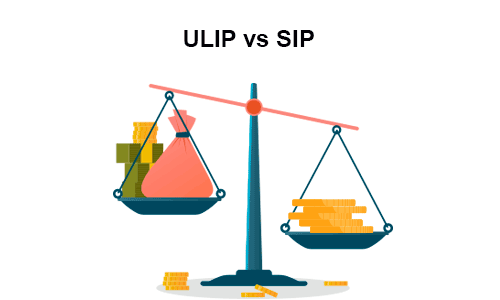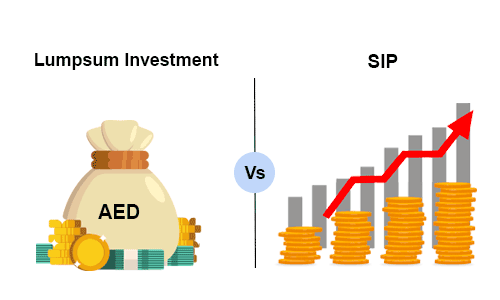Fixed Deposits Vs Mutual Fund
There are many ways to invest your money in India, with two popular choices being fixed deposits (FD) and mutual funds. Each option has its own set of features and benefits. If you want to make the most of your investment, it's necessary to comprehend these differences.
Table of Content
Choosing between an FD and a mutual fund shouldn't be a random pick, rather it should be based on knowledge and thorough research. This article sheds light on FDs vs Mutual Funds so that you can pick the one that suits your needs best.
What are Fixed Deposits?
Fixed deposits are savings instruments offered by banks and financial companies. When you put your money in a fixed deposit, you agree to leave it there for a predetermined period. In return, the bank gives you interest on that money.
Once the agreed time is over, you get your principal amount back along with the interest it earned. Fixed deposits are popular because they are fairly straightforward and safe.
Key Features of Fixed Deposits
- Steady Returns: You get a fixed interest rate with FDs. This means your money will grow at the same rate, no matter how the market behaves.
- Safe Choice: Your money is safe in an FD as the ups and downs of markets don't affect it. You're sure to get your invested amount and the promised interest.
- Better Than Savings: Fixed deposits often provide more interest than regular savings accounts. This can help your money grow faster.
- Flexible Tenure: You can choose how long you want to keep your money in an FD. It can be a few months or many years, depending on what suits you.
- Tax Benefits: Some FDs can help you save on taxes. If you're a senior citizen, you might get even more benefits on the interest from your FD.
- Access to Money: If you really need your money, you can get it before the FD ends. But remember, doing this might mean you get less interest or pay some penalty.
What are Mutual Funds?
In mutual funds, you have to put money in a particular fund along with the other people. Experts, called fund managers, use this money pot to buy different things like stocks or bonds. Their aim is to make the money grow by buying and selling at the right time.
Some fund managers actively buy and sell often, trying to beat the market. Others follow a market pattern without changing much. The latter is called passive management.
Key Features of Mutual Funds
- Market-Linked Returns: Mutual funds can earn a lot if the market does well and the fund manager chooses right. However, if things don't go well, the value might go down.
- Beat the Rising Prices: Mutual funds can help your money grow faster than the rising prices (inflation). Some types of mutual funds, like equity funds, often grow faster than regular bank savings.
- Spread the Risk: Instead of putting all your money in one place, mutual funds spread it out. This way, even if one part doesn't do well, the other parts might still make money.
- Expert Touch: Mutual funds have professionals who decide where to put the money. These experts use their skills and tools to pick the best options.
- Easy In, Easy Out: It's generally simple to put money into or take money out of mutual funds. This means you can adjust based on your needs.
- Flexible Choices: You can put a lump sum in mutual funds or add a little at a time, like in a Systematic investment plan (SIP). There's no strict upper limit on how much you can invest.
Difference Between Fixed Deposits and Mutual Funds
Both fixed deposits (FDs) and mutual funds are popular investment options The choice between FDs and mutual funds often depends on an individual's risk appetite, investment horizon, and financial goals.
Let’s take a look at some of the major differences between FD and mutual funds –
| Parameter | Fixed Deposits | Mutual Funds |
|---|---|---|
| Nature | A savings instrument | An investment vehicle pooling investor's money |
| Return | Predetermined fixed interest rate | Returns are not guaranteed — they can be variable based on market performance |
| Risk | Generally low risk | Varies — can be low to high based on the type (e.g., equity funds are higher risk compared to debt funds) |
| Liquidity | Limited — early withdrawal often results in penalty | Generally high; depends on the type (some funds like liquid funds offer quick redemption while others might have a lock-in period) |
| Investment Horizon | Suitable for short to medium term | Suitable for all horizons: short, medium, and long-term |
| Taxation | Interest earned is taxable | Varies based on type and holding period (e.g., long-term capital gains on equity mutual funds might be taxed differently than short-term gains or returns from debt funds) |
| Diversification | No diversification — all your money is parked in one instrument | Diversified investment across various assets depending on the fund type |
| Entry/Exit charges | Usually, no entry charges; penalty for premature withdrawal | Some funds may have entry or exit loads |
| Flexibility | Fixed tenure | Flexible – can invest or withdraw (subject to fund type and terms) as needed |
| Management | Managed by the bank or financial institution where deposited | Managed by professional fund managers who decide which securities to buy or sell based on research |
FD vs Mutual Fund – Which One is Better?
Fixed deposits (FDs) have long been a favourite choice for many Indian investors. They are seen as safe and reliable. On the other hand, mutual funds, while relatively new in comparison, can offer better potential returns.
Here's a simple comparison to help decide which might be better for you -
- Returns: Mutual funds often have the potential for higher returns compared to FDs.
- Taxation: With mutual funds, you only pay tax when you sell your units for a profit. In contrast, FDs get taxed as the interest accumulates.
- Beating Inflation: Mutual funds have a better track record in outpacing inflation compared to FDs.
- Volatility: This is where mutual funds can be challenging for some. They can be unpredictable because they are linked to market movements. But remember, with greater risks can come greater rewards.
- Variety: Mutual funds offer a wide range of options. Some are less risky, while others are more so. You can start with safer options and gradually explore others as you get more comfortable.
So while FDs are more straightforward and familiar, mutual funds offer a broader range of choices and potential for higher returns. It's essential to understand your comfort with risk and seek advice if needed.
Remember, the right choice depends on your personal financial goals and risk tolerance.
Over to You
In the debate of FD vs mutual funds, it's clear that both have their unique strengths and advantages.
FDs offer predictability and security, making them a preferred choice for those who want a no-surprise, steady growth of their investments. On the flip side, mutual funds, with their potential for higher returns, appeal to those ready to accept some level of risk for better growth opportunities.
The decision isn't about which is better, but which is better suited to your financial objectives, goals, and risk tolerance. It's essential to be well-informed and, if necessary, seek expert advice to navigate the complexities.
In the end, whether you opt for FDs or mutual funds, the key is to invest wisely and consistently.

More From Investment
- Recents Articles
- Popular Articles





.jpg)











.jpg)
.jpg)

















